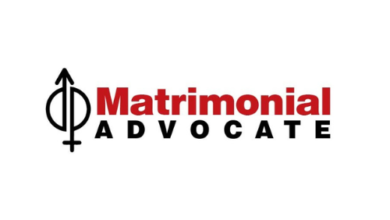Electrical Certificate UK: Ensuring Compliance and Safety
In the United Kingdom, electrical certificates play a crucial role in ensuring the safety and compliance of electrical installations in properties. These certificates, also known as Electrical Installation Condition Reports (EICRs) or Electrical Safety Certificates, are essential documents that provide valuable insights into the condition and safety of electrical systems. In this guide, we’ll explore the importance of electrical certificate UK, what they entail, and why property owners should prioritize obtaining them.
Importance of Electrical Certificates
Electrical certificates serve several important purposes:
- Compliance: Electrical certificates are necessary to demonstrate compliance with legal requirements and regulations governing electrical installations in the UK. They ensure that properties meet the necessary safety standards and regulations set forth by regulatory authorities.
- Safety: By assessing the condition of electrical installations and identifying any defects or hazards, electrical certificates help ensure the safety of occupants and mitigate the risk of electrical accidents, fires, or injuries.
- Insurance Requirements: Many insurance providers require properties to have valid electrical certificates as a condition of coverage. These certificates provide assurance to insurance companies that properties are safe and compliant with electrical safety standards.
- Legal Obligations: Property owners, landlords, and employers have a legal responsibility to ensure the safety of electrical installations within their properties. Obtaining electrical certificates is a crucial step in fulfilling these legal obligations.
Types of Electrical Certificates
In the UK, there are several types of electrical certificates commonly used:
- Electrical Installation Condition Report (EICR): An EICR is a comprehensive assessment of the condition and safety of electrical installations within a property. It identifies any defects, damage, or non-compliance with regulations and provides recommendations for remedial actions.
- Minor Electrical Installation Works Certificate: This certificate is issued for minor electrical works, such as the installation of additional sockets or lighting circuits. It confirms that the work has been carried out in compliance with relevant regulations.
- Electrical Installation Certificate (EIC): An EIC is issued for new electrical installations or significant alterations to existing installations. It certifies that the installation meets the requirements of the wiring regulations and has been inspected and tested by a qualified electrician.
Obtaining an Electrical Certificate
To obtain an electrical certificate in the UK, property owners typically need to engage a qualified electrician or electrical contractor to conduct the necessary inspections and tests. The electrician will assess the condition of electrical installations, perform tests and measurements, and issue the appropriate certificate based on the findings.
Conclusion
Electrical certificates are essential documents that verify the safety and compliance of electrical installations in properties in the UK. By obtaining these certificates, property owners can ensure the safety of occupants, comply with legal requirements, and assure insurance providers and regulatory authorities.
FAQs
- What is an electrical certificate, and why is it important?
- An electrical certificate, such as an Electrical Installation Condition Report (EICR) or Electrical Installation Certificate (EIC), is a document that verifies the safety and compliance of electrical installations in a property. It is important because it demonstrates compliance with regulations, ensures the safety of occupants, and may be required by insurance providers and regulatory authorities.
- Who needs to obtain an electrical certificate?
- Property owners, landlords, employers, and anyone responsible for the safety of electrical installations within a property may need to obtain an electrical certificate. This includes residential homeowners, landlords of rental properties, and owners of commercial or industrial premises.
- What is the difference between an EICR and an EIC?
- An EICR (Electrical Installation Condition Report) is a comprehensive assessment of the condition and safety of electrical installations within a property. It identifies any defects, damage, or non-compliance with regulations and provides recommendations for remedial actions. On the other hand, an EIC (Electrical Installation Certificate) is issued for new electrical installations or significant alterations to existing installations. It certifies that the installation meets the requirements of the wiring regulations and has been inspected and tested by a qualified electrician.
- How often should I obtain an electrical certificate for my property?
- The frequency of obtaining an electrical certificate depends on various factors, including the type of property, its usage, and any regulatory requirements. In general, it is recommended to obtain an EICR every five years for residential properties and more frequently for commercial or industrial premises. New installations or alterations may require an EIC to be issued upon completion.
- Can I conduct an electrical certificate assessment myself, or do I need to hire a professional?
- Electrical certificate assessments should be conducted by qualified electricians or electrical contractors with the necessary training, experience, and expertise. Attempting to assess electrical installations without the appropriate knowledge and equipment can be dangerous and may not meet regulatory requirements.


